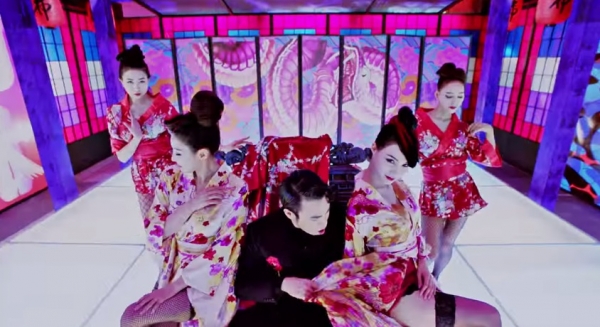![Block B unit group Bastarz has been criticized for its portrayal of the Japanese kimono. [Block B]](http://www.jstudentboard.com/reporter/wp-content/uploads/2015/05/block-b-conduct-zero-teaser.jpg)
The seven-person group has recently spawned a splinter group, Bastarz, with three of members. As BlockB’s first so-called “unit group,” Bastarz gained fans’ attention with their new song, “Conduct Zero.” When its first teaser was released on April 8, however, it received as many criticisms as praises.
On certain Korean websites, including Nate.com, some people raised criticisms that the music video’s provocative use of the kimono, a traditional Japanese clothing article, could bring problems to the already tight Korean-Japanese tension. Some netizens criticized Bastarz for being disrespectful to Japanese culture and argued that Koreans would feel disrespected if Japanese groups depicted sexual materials with hanbok, Korea’s traditional clothing.
Ida Kyaw, a junior who has interest and exposure to Asian pop cultures, told JSR, “In terms of respecting a culture, this has no [respect]. Why did they use the Japanese kimono? Yes, it’s for a concept. But this shows cultural indifference from the group. Creativity doesn’t have to come in such terms.”
However, others have defended BlockB by saying that the music video had no intention of being disrespectful and that not many people even associated the kimono with the provocative materials in it.
Zoha Jamal, a junior who has only had limited exposure to K-Pop, reacted to the teaser by saying, “I don’t really see any culturally disrespectful part of it, maybe because I don’t really know Asian cultures. All I see is that it’s slightly provocative.”
Although Bastarz’s Conduct Zero’s actual music video and songs received many praises as controversies settled down, the fact that some people considered it disrespectful cannot be ignored. In Korea, in which celebrities are portrayed as role models and idols for the young generation, the popular opinion is that K-Pop groups should be attentive in what they are expressing in their songs or performances.
Especially now that K-Pop is spreading around the world, many feel that K-Pop groups should realize that their roles have changed from simple entertainers to role models for younger generations and even diplomatic representatives of Korea. Fans and other people who are exposed only to K-Pop may take what it depicts to be the entire Korean culture.
Controversies like this one, although they may seem infinitesimal, show how large of role of K-Pop plays as representatives of Korean culture. K-Pop, although began for the pure fun and pleasure it gives to its audiences, is no longer just for fun; as its role expands, K-Pop groups must be mindful in what they are expressing.

